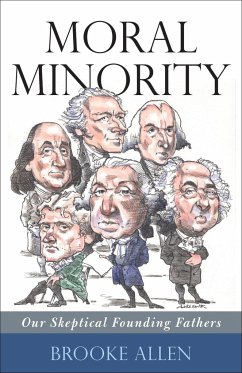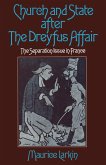The guiding spirit of the Declaration of Independence and the U.S. Constitution, Ms. Allen explains, was not Jesus Christ but John Locke. In direct and accessible prose, she provides fascinating chapters on the religious lives of the six men she considers the key Founding Fathers: Franklin, Washington, John Adams, Jefferson, Madison, and Hamilton. Far from being the conventional pious Christians we too often imagine, these men were skeptical intellectuals, in some cases not even Christians at all. Enlivened by generous portions of the founders' own incomparable prose, Moral Minority makes an impassioned and scintillating contribution to the ongoing debate--more heated now than ever before--over the separation of church and state and the role (or lack thereof) of religion in government.
Hinweis: Dieser Artikel kann nur an eine deutsche Lieferadresse ausgeliefert werden.
Hinweis: Dieser Artikel kann nur an eine deutsche Lieferadresse ausgeliefert werden.








